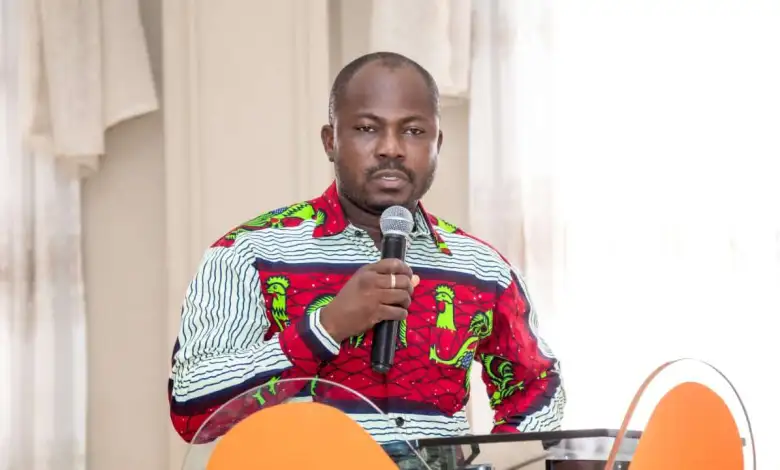The aftermath of the 2024 presidential election in Ghana has sparked a flurry of debate and analysis, with particular scrutiny focused on the New Patriotic Party (NPP) and the circumstances surrounding their electoral performance. A key point of contention has emerged concerning Dr. Mahamudu Bawumia’s early concession of defeat, even before the Electoral Commission’s official declaration of the presidential results. Former Tamale Central MP, Inusah Fuseini, has posited that this preemptive concession had a detrimental effect on the collation of parliamentary results, particularly in closely contested constituencies. Fuseini argues that Bawumia’s action created an atmosphere of confusion and effectively diverted attention away from the crucial process of vote tallying, potentially influencing the outcome in some parliamentary races.
Haruna Mohammed, Deputy General Secretary of the NPP, vehemently rejects this assertion. He contends that Fuseini’s claim is unfounded and lacks logical coherence. Mohammed argues that there is no credible link between Bawumia’s personal decision to concede the presidential race and any alleged disruptions in the parliamentary collation process. He dismisses the suggestion that the concession contributed to any disarray or confusion, emphasizing the independence of the two electoral processes. Mohammed attributes any challenges experienced during the parliamentary collation to other factors, entirely separate from Bawumia’s concession.
The crux of the disagreement hinges on the perceived impact of Bawumia’s early concession. Fuseini’s perspective suggests that this action, occurring before the official results, sent a premature signal of defeat within the NPP ranks, potentially demoralizing party agents and supporters involved in monitoring the parliamentary counts. This perceived demoralization, he argues, could have weakened their vigilance and effectiveness in challenging irregularities or ensuring accurate tallying, especially in constituencies where the margins were tight. Essentially, Fuseini implies that Bawumia’s concession, by creating a sense of inevitability about the overall election outcome, inadvertently undermined the NPP’s focus on the ongoing parliamentary contests.
Mohammed, on the other hand, views Bawumia’s concession as a personal decision with no bearing on the separate and independent process of parliamentary vote collation. He argues that attributing any disruptions or irregularities in the parliamentary collation to the concession is a mischaracterization of the events. He maintains that the integrity of the parliamentary vote count remained unaffected by the presidential outcome or any preemptive statements about it. Mohammed suggests that attributing blame to Bawumia’s concession is a convenient narrative but one that lacks evidence and a sound logical basis.
This divergence of opinion underscores the deeper political dynamics at play within the NPP following the 2024 election. The party is grappling with internal narratives and interpretations of their performance. Bawumia’s early concession, while arguably a demonstration of statesmanship and a commitment to peaceful transition, has become a focal point for differing interpretations of the party’s overall electoral strategy and its impact on the final results. The debate highlights the ongoing post-election analysis and the search for explanations for the NPP’s performance, both in the presidential and parliamentary races. The contrasting views expressed by Fuseini and Mohammed reflect the broader internal discussions and potential tensions within the party as it navigates the post-election landscape and prepares for the future.
Ultimately, the disagreement over the impact of Bawumia’s concession reveals the complex interplay of factors influencing electoral outcomes and the difficulty of isolating specific causes. While Fuseini points to the concession as a disruptive factor, Mohammed argues for a more nuanced understanding, emphasizing the independent nature of presidential and parliamentary elections. This debate underscores the importance of robust electoral processes and the need for careful analysis when evaluating the contributing factors to electoral outcomes. The contrasting viewpoints necessitate a thorough examination of the evidence and a nuanced understanding of the context to determine the true impact of Bawumia’s early concession on the 2024 Ghanaian elections.


